Will the baby's fever and bathing make the condition worse?
2022-03-24
The question of "whether it is okay for a baby to take a bath with fever" has been very controversial. Some mothers think that "bathing with a fever can cool the baby and let the baby wash clean", while some mothers think "don't bathe your baby when you have a fever, especially if your baby's hands and feet are cold and the forehead is hot, it may aggravate the situation." illness". In fact, the situation of a baby's fever is more complicated. After all, a fever is a condition that can change at any time. The body temperature will change at any time, and the state of "fever" will also change. There may be an increase in body temperature, a decrease in body temperature, continuous fever, etc. The situation, and different situations, the answer to the baby's fever bath will be different. Then let's see if we can give you a more scientific answer to the question about taking a bath with a baby's fever.
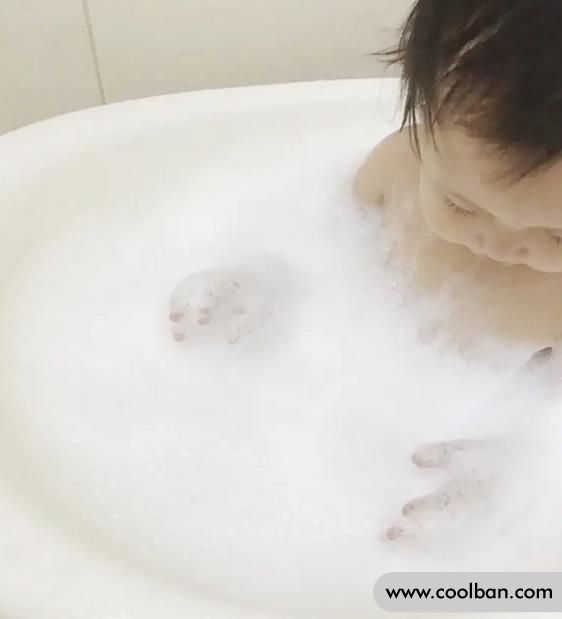
Is it okay for a baby to take a bath with fever?
In fact, the problem of taking a bath with a baby's fever should be "depending on the situation".
The body temperature of infants is slightly higher than that of adults, generally 36.3-37.4 ℃, and the thermoregulatory center of small infants is not yet fully developed. Therefore, when a baby has a fever, whether or not to take a bath depends on the specific situation.
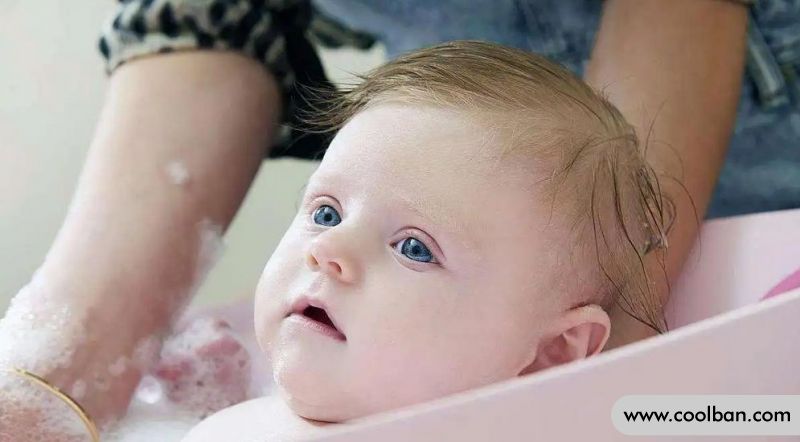
1. Under what circumstances can a baby have a fever and take a bath!
When the baby's body temperature does not exceed 38.5 ℃.
1. Considering the baby's situation, decide whether to take a bath or not
If the baby's body temperature does not exceed 38.5 ℃, it is in the low-grade fever period. If the baby has no other symptoms, such as dizziness, nausea, vomiting, etc., except for fever, and the mental state is relatively good, you can bathe the baby.
In this case, taking a bath can not only clean the skin and prevent infection, but more importantly, it can play a role in physical cooling.
However, if the baby is in a low-grade fever period, but the mental state is extremely poor and the systemic symptoms are severe, it is not appropriate to bathe the baby in this situation. First, the baby will not cooperate, and secondly, the condition may be aggravated.
2. Pay attention to these aspects when bathing your baby
(1) If the baby likes to take a bath, you can take a bath directly in the bathtub, or you can wipe the body with a hot towel. If your baby doesn't like bathing, you can use a hot towel to wipe your baby's body, especially the inner thighs, thigh roots, forehead, armpits, etc., to let the baby's body heat dissipate.
(2) Room temperature, room temperature should be adjusted in advance.
If you plan to bathe the baby to cool down, it is best to ensure that the home is not too cold. You can bathe the baby at 24-26°C, such as closing the doors and windows, turning on the heater, or turning on the Yuba (to avoid the light of the Yuba from irritating the baby's eyes).
Under normal circumstances, the water temperature of the baby's bath is generally 37-39 ℃, if the baby has a fever, you can lower the water temperature, around 35-37 ℃, to help the baby cool down.
Tip: It is recommended to prepare a humidity thermometer at home, which helps to adjust the comfortable indoor environment and is more conducive to the healthy growth of the baby.
(3) Avoid taking a bath for too long.
It is not advisable to bathe your baby for too long. Fever will make the baby feel uncomfortable and emotionally unstable. A long bath may aggravate the baby's discomfort and crying, while the long bath water will become cold and aggravate the baby's fever.
If you feel that the water temperature is not high during the bath, you can add hot water in time, but pay attention to avoid the baby to avoid scalding the baby.
(4) After washing, quickly dry and put on clothes for the baby, and keep warm.
When you can bathe, put clean clothes aside, dry them thoroughly as soon as possible after washing, and dress your baby right away.
(5) Pay attention to hydration after bathing.
After taking a bath, you should pay attention to properly hydrating your baby. It is not recommended to drink juice. Warm water is best. First, drinking water can speed up metabolism and help cool down. Second, it can replenish some of the water lost during bathing.
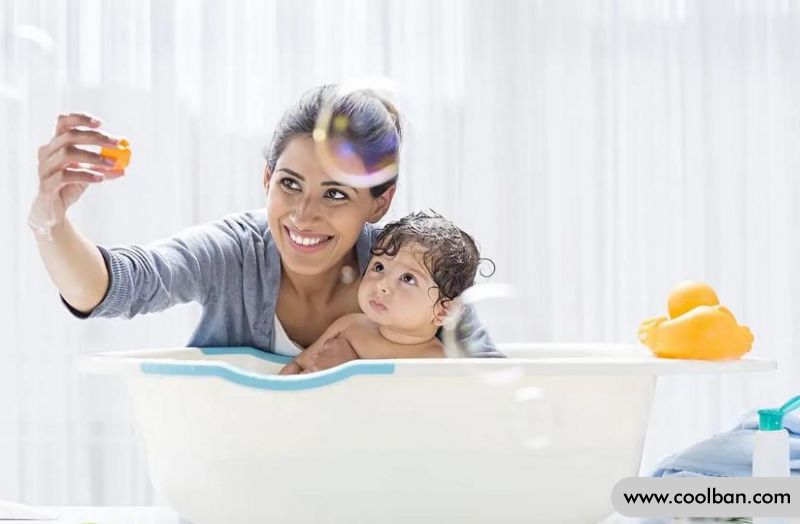
Second, in this case, it is not allowed for the baby to take a bath with fever!
When the baby's body temperature exceeds 38.5 ℃.
When the baby's body temperature exceeds 38.5 ℃, it is in the period of moderate and high fever. At this time, it is not recommended to bathe the baby, mainly considering these aspects.
1. The temperature of the baby's body surface increases, and the blood flow rate increases. Taking a bath will make the baby's blood vessels dilate even more, affecting the blood and oxygen supply of vital organs, so the baby may faint and lack oxygen.
2. In addition, when the baby has a high fever, there may be a red rash all over the body, which is more common in young children, but also has herpes, chickenpox, etc. If your baby's fever is caused by a viral infection, avoid bathing your baby and take your baby to see a doctor promptly.
3. When the baby's body temperature is particularly high, there will be syncope or even a short-term disturbance of consciousness. At this time, it will be very dangerous to bathe the baby, and a little carelessness may be life-threatening.
Generally speaking, the question of whether it is okay to take a bath for a baby with a fever depends on the actual situation. Parents can analyze and decide according to the baby's own situation; if they are not sure, they can not take a bath. , other physical cooling methods can be taken.
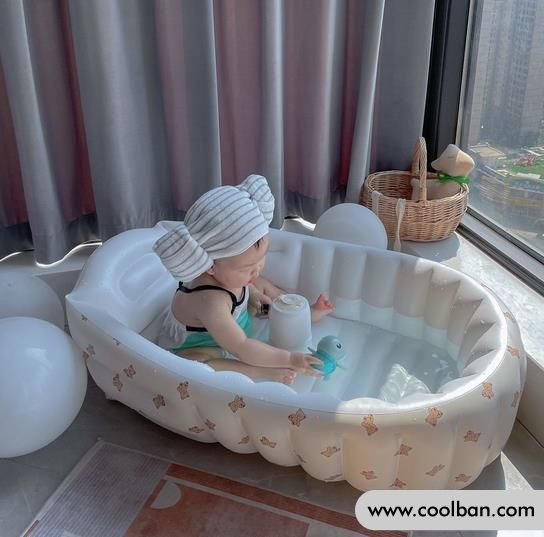
When your baby has a fever, there are several things you should pay attention to
1. Regularly monitor the body temperature. If the fever persists, it is the right way to take your baby to see a doctor in time.
When your baby has a fever, take your baby's temperature regularly and keep a record. If the temperature exceeds 38.5°C or the fever persists, take your baby to see a doctor in time. Never give your baby some fever-reducing medicine yourself, especially if you're not sure about it yourself.
2. Give your baby plenty of warm water.
During the fever, give the baby more warm water to moisten the baby's respiratory tract and help cool down.
3. Eat more fresh vegetables and fruits.
Many parents think that it is better not to eat when the baby is sick to reduce the burden on the stomach; but some parents think that it is more important to eat well during the sick, so that the recovery can be faster.
But in fact, a light diet is enough. You can give the baby some porridge, vegetables and fruits, supplement various vitamins and trace elements, and enhance the resistance; but if the baby really has no appetite and doesn't want to eat, don't force the baby.
4. Less activity, more rest.
For babies with fever, they must have enough rest and minimize activities. At the same time, parents should also closely observe the mental state of the baby.
5. Parents should spend more time with their babies.
People are vulnerable when they are sick, and babies are no exception. Therefore, when the baby has a fever, be sure to comfort and accompany the baby, encourage the baby, and help the baby to get through the difficulties together.
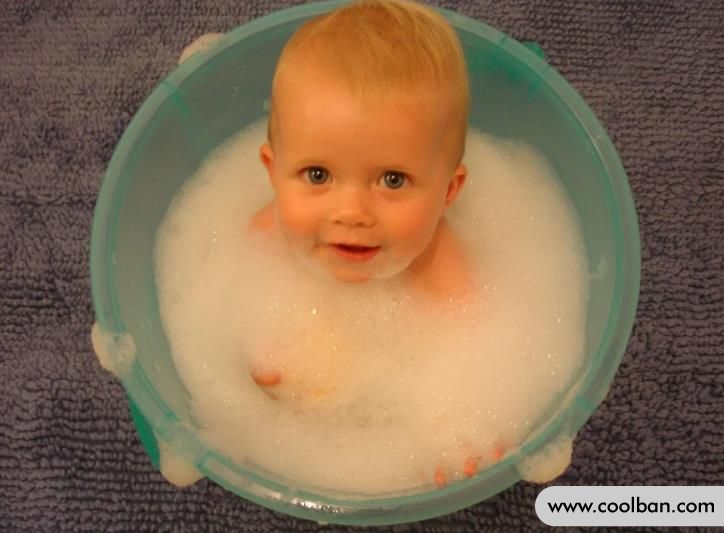
I believe you also have a certain understanding of the problem of baby fever bathing. The baby's resistance to external bacteria and viruses is weak, and a "fever" will appear if you are not careful. This is a process that every baby has to go through. It can be regarded as a process to improve the baby's immunity. So when the baby has a fever, parents don't have to worry too much, just take proper care.

Is it okay for a baby to take a bath with fever?
In fact, the problem of taking a bath with a baby's fever should be "depending on the situation".
The body temperature of infants is slightly higher than that of adults, generally 36.3-37.4 ℃, and the thermoregulatory center of small infants is not yet fully developed. Therefore, when a baby has a fever, whether or not to take a bath depends on the specific situation.

1. Under what circumstances can a baby have a fever and take a bath!
When the baby's body temperature does not exceed 38.5 ℃.
1. Considering the baby's situation, decide whether to take a bath or not
If the baby's body temperature does not exceed 38.5 ℃, it is in the low-grade fever period. If the baby has no other symptoms, such as dizziness, nausea, vomiting, etc., except for fever, and the mental state is relatively good, you can bathe the baby.
In this case, taking a bath can not only clean the skin and prevent infection, but more importantly, it can play a role in physical cooling.
However, if the baby is in a low-grade fever period, but the mental state is extremely poor and the systemic symptoms are severe, it is not appropriate to bathe the baby in this situation. First, the baby will not cooperate, and secondly, the condition may be aggravated.
2. Pay attention to these aspects when bathing your baby
(1) If the baby likes to take a bath, you can take a bath directly in the bathtub, or you can wipe the body with a hot towel. If your baby doesn't like bathing, you can use a hot towel to wipe your baby's body, especially the inner thighs, thigh roots, forehead, armpits, etc., to let the baby's body heat dissipate.
(2) Room temperature, room temperature should be adjusted in advance.
If you plan to bathe the baby to cool down, it is best to ensure that the home is not too cold. You can bathe the baby at 24-26°C, such as closing the doors and windows, turning on the heater, or turning on the Yuba (to avoid the light of the Yuba from irritating the baby's eyes).
Under normal circumstances, the water temperature of the baby's bath is generally 37-39 ℃, if the baby has a fever, you can lower the water temperature, around 35-37 ℃, to help the baby cool down.
Tip: It is recommended to prepare a humidity thermometer at home, which helps to adjust the comfortable indoor environment and is more conducive to the healthy growth of the baby.
(3) Avoid taking a bath for too long.
It is not advisable to bathe your baby for too long. Fever will make the baby feel uncomfortable and emotionally unstable. A long bath may aggravate the baby's discomfort and crying, while the long bath water will become cold and aggravate the baby's fever.
If you feel that the water temperature is not high during the bath, you can add hot water in time, but pay attention to avoid the baby to avoid scalding the baby.
(4) After washing, quickly dry and put on clothes for the baby, and keep warm.
When you can bathe, put clean clothes aside, dry them thoroughly as soon as possible after washing, and dress your baby right away.
(5) Pay attention to hydration after bathing.
After taking a bath, you should pay attention to properly hydrating your baby. It is not recommended to drink juice. Warm water is best. First, drinking water can speed up metabolism and help cool down. Second, it can replenish some of the water lost during bathing.

Second, in this case, it is not allowed for the baby to take a bath with fever!
When the baby's body temperature exceeds 38.5 ℃.
When the baby's body temperature exceeds 38.5 ℃, it is in the period of moderate and high fever. At this time, it is not recommended to bathe the baby, mainly considering these aspects.
1. The temperature of the baby's body surface increases, and the blood flow rate increases. Taking a bath will make the baby's blood vessels dilate even more, affecting the blood and oxygen supply of vital organs, so the baby may faint and lack oxygen.
2. In addition, when the baby has a high fever, there may be a red rash all over the body, which is more common in young children, but also has herpes, chickenpox, etc. If your baby's fever is caused by a viral infection, avoid bathing your baby and take your baby to see a doctor promptly.
3. When the baby's body temperature is particularly high, there will be syncope or even a short-term disturbance of consciousness. At this time, it will be very dangerous to bathe the baby, and a little carelessness may be life-threatening.
Generally speaking, the question of whether it is okay to take a bath for a baby with a fever depends on the actual situation. Parents can analyze and decide according to the baby's own situation; if they are not sure, they can not take a bath. , other physical cooling methods can be taken.

When your baby has a fever, there are several things you should pay attention to
1. Regularly monitor the body temperature. If the fever persists, it is the right way to take your baby to see a doctor in time.
When your baby has a fever, take your baby's temperature regularly and keep a record. If the temperature exceeds 38.5°C or the fever persists, take your baby to see a doctor in time. Never give your baby some fever-reducing medicine yourself, especially if you're not sure about it yourself.
2. Give your baby plenty of warm water.
During the fever, give the baby more warm water to moisten the baby's respiratory tract and help cool down.
3. Eat more fresh vegetables and fruits.
Many parents think that it is better not to eat when the baby is sick to reduce the burden on the stomach; but some parents think that it is more important to eat well during the sick, so that the recovery can be faster.
But in fact, a light diet is enough. You can give the baby some porridge, vegetables and fruits, supplement various vitamins and trace elements, and enhance the resistance; but if the baby really has no appetite and doesn't want to eat, don't force the baby.
4. Less activity, more rest.
For babies with fever, they must have enough rest and minimize activities. At the same time, parents should also closely observe the mental state of the baby.
5. Parents should spend more time with their babies.
People are vulnerable when they are sick, and babies are no exception. Therefore, when the baby has a fever, be sure to comfort and accompany the baby, encourage the baby, and help the baby to get through the difficulties together.

I believe you also have a certain understanding of the problem of baby fever bathing. The baby's resistance to external bacteria and viruses is weak, and a "fever" will appear if you are not careful. This is a process that every baby has to go through. It can be regarded as a process to improve the baby's immunity. So when the baby has a fever, parents don't have to worry too much, just take proper care.
